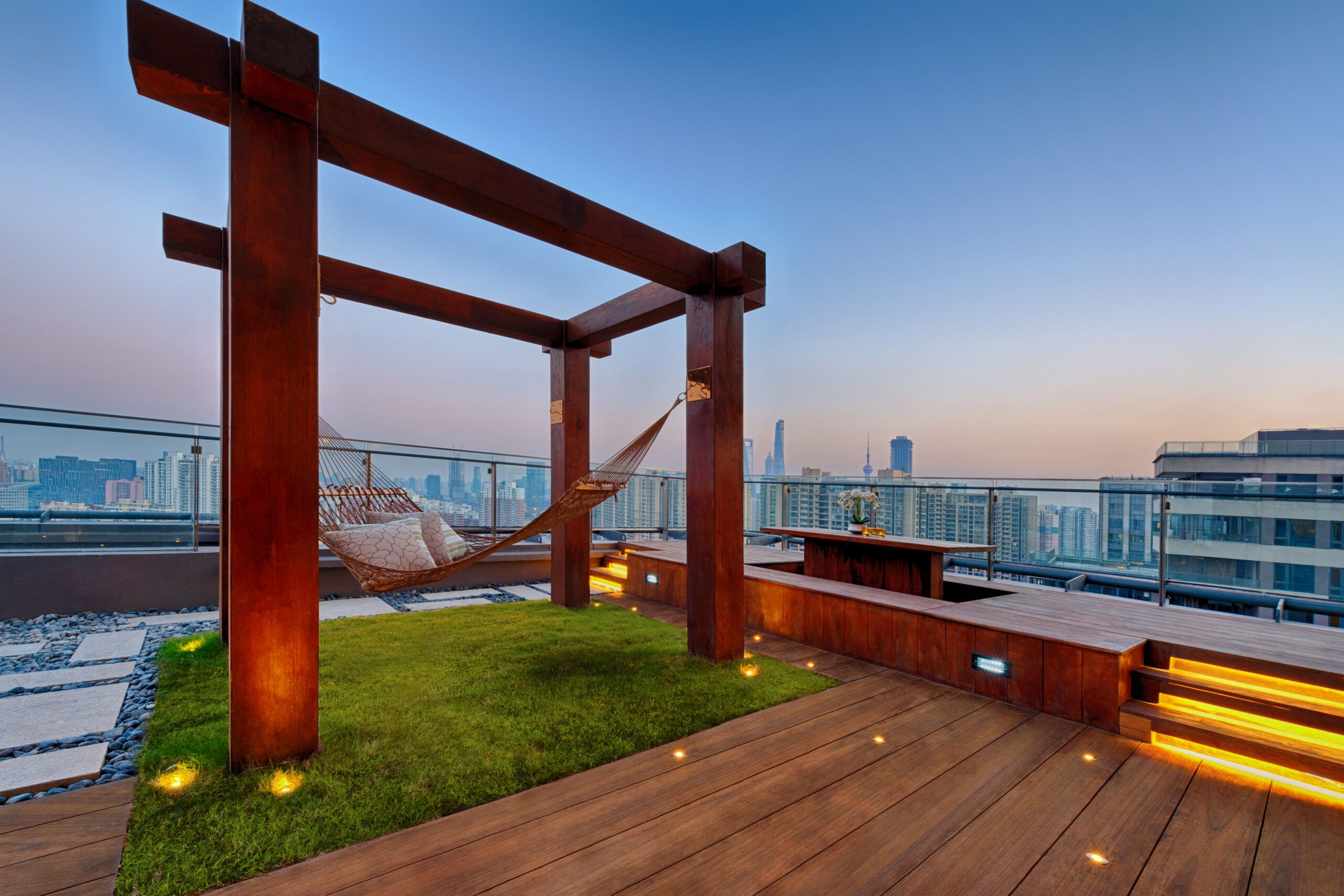As Boston, Massachusetts, continues to grow and urban areas become more densely populated, rooftop decking has emerged as a popular trend. In this article, we will explore the world of rooftop decking in Boston and delve into the latest trends that are reshaping the city’s skyline. From maximizing outdoor space to embracing breathtaking views, rooftop decking offers a unique opportunity to transform unused rooftops into serene and functional urban paradises. Join us as we uncover the beauty, innovation, and sustainability of rooftop decking in Boston, and discover how residents are creating their own elevated retreats in the heart of the city.
Maximizing Space in the City
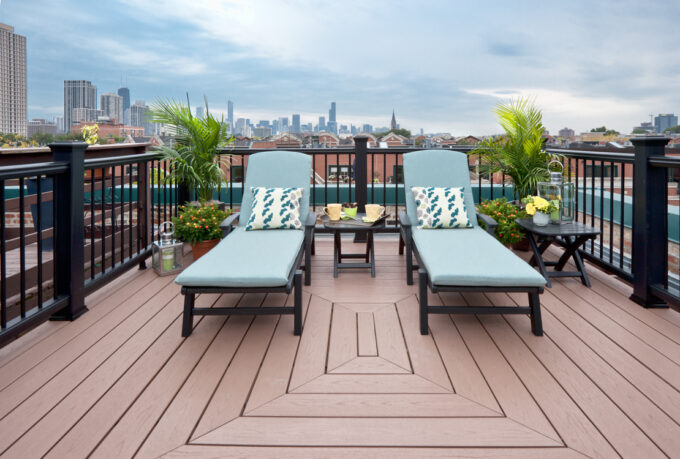
Boston, Massachusetts, with its vibrant cityscape and limited outdoor areas, poses a unique challenge when it comes to maximizing space. However, rooftop decking offers a solution to optimize available space and create functional outdoor areas in the heart of the city. Here’s a closer look at how rooftop decking can transform urban spaces and provide residents with a much-needed connection to nature.
Limited Outdoor Space in Urban Areas like Boston
Finding outdoor space can be challenging in densely populated urban areas like Boston. With limited backyard areas and restricted open spaces, residents often seek alternative ways to enjoy the outdoors. Rooftop decking presents an opportunity to utilize unused rooftop areas and convert them into inviting living spaces.
Optimizing Available Space with Rooftop Decking
Rooftop decking allows for the utilization of underutilized space, effectively expanding the usable square footage of a building. Residents can create outdoor living spaces, entertainment areas, or peaceful retreats by taking advantage of the rooftop area.
Innovative Designs and Ideas for Maximizing Rooftop Areas
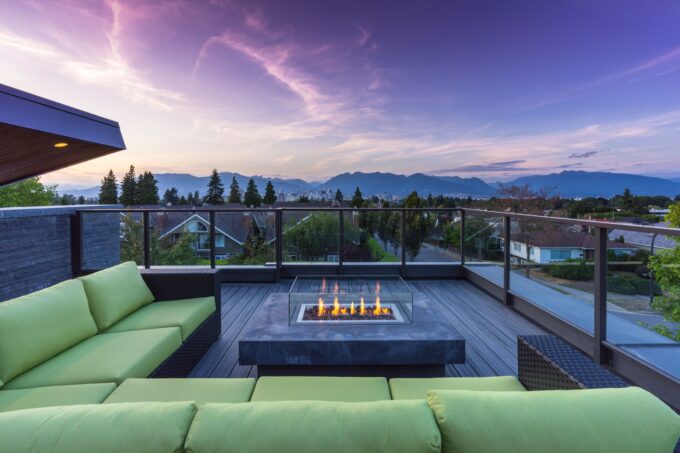
The world of rooftop decking in Boston is brimming with innovative deck design ideas. Architects and designers continuously push boundaries to create unique and functional rooftop spaces. Some popular trends include:
- Multi-level decking: Designing rooftop decks with multiple levels adds visual interest and maximizes the use of space.
- Green roofs: Incorporating vegetation and landscaping into rooftop decks not only add beauty but also helps with insulation, rainwater retention, and air quality improvement and helps keep the roof cool.
- Outdoor kitchens: Rooftop decks can be transformed into culinary havens, featuring fully equipped outdoor kitchens for entertaining guests.
- Versatile seating: Opting for modular or convertible seating options allows for flexibility in configuring the outdoor space to accommodate different activities.
- Vertical gardens: Utilizing vertical spaces with green walls or hanging planters brings a touch of nature to rooftop decks while conserving space.
Embracing Boston’s Skyline and Views
One of the most fascinating aspects of Boston is its stunning skyline and panoramic views. Rooftop decking provides an opportunity to embrace these breathtaking vistas and enhance the overall experience of living in the city.
Panoramic Views in Boston
Boston’s unique location offers residents and visitors panoramic views of the city, including its historic landmarks, waterfront, and architectural marvels. Rooftop decks provide an elevated vantage point to appreciate these stunning vistas and create a connection between indoor and outdoor spaces.
Enhancing the Experience of Cityscape Vistas
Rooftop decking can be strategically designed to maximize the enjoyment of Boston’s skyline. Features such as glass railings, open spaces, and unobstructed sightlines allow for uninterrupted views from the rooftop deck. Choosing lighter colors for the decking material and furniture can help create a sense of openness and brightness, further enhancing the experience.
Rooftop Decks Showcasing Boston’s Views
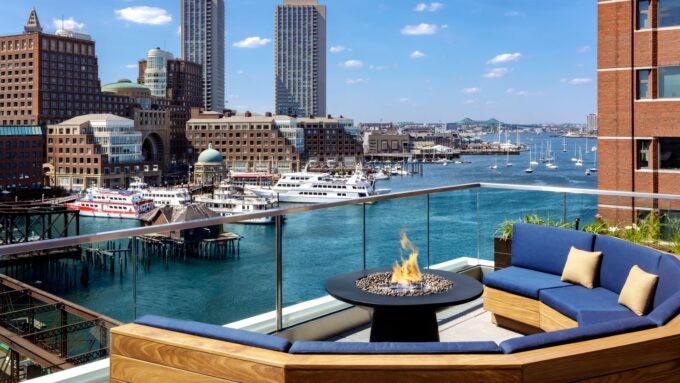
The city has remarkable examples of rooftop decks that capitalize on Boston’s views. From residential built-up roofs with rooftop gardens overlooking the Charles River to commercial spaces with rooftop bars offering panoramic cityscape views, these rooftop decks create an oasis amidst the bustling city.
Sustainable Design and Eco-Friendly Practices
The focus on sustainability and eco-friendly practices has recently extended to rooftop decking in Boston. By prioritizing environmentally friendly roof decking materials and green building techniques, residents can create rooftop decks that enhance their living spaces and minimize their ecological footprint.
The Growing Trend of Sustainable Rooftop Decking
Boston, known for its commitment to sustainability, has seen a surge in the popularity of sustainable rooftop decking because it is durable and requires less maintenance. Homeowners and designers embrace eco-friendly practices to minimize environmental impact and promote a greener future.
Environmentally Friendly Materials
When building a rooftop deck, choosing sustainable materials is essential. Decking material options like composite decking made from recycled materials, pressure-treated wood sourced from responsibly managed forests, or alternative decking boards that reduce the need for frequent maintenance are all eco-friendly choices.
Incorporating Boston’s Unique Architectural Style
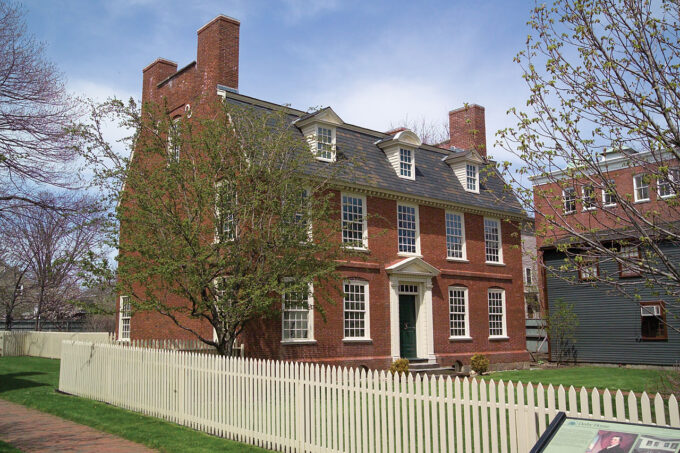
Boston’s architectural style is a blend of historic charm and modern innovation. When designing rooftop decks, it’s essential to consider the city’s architectural character and seamlessly integrate them into the urban landscape.
Complementing Boston’s Historic and Modern Architecture
Rooftop decking should harmonize with the unique architectural style of Boston. Whether it’s a historic brownstone or a contemporary high-rise, rooftop decks can be designed to blend in seamlessly, respecting the city’s heritage while embracing modern design principles.
Design Elements That Harmonize with Boston’s Architecture
Design choices such as materials, colors, and architectural details help create a cohesive look between the rooftop deck and the surrounding buildings. Paying attention to architectural features like brick facades, ironwork, or large windows can inspire design elements that tie the rooftop deck to the overall aesthetic of Boston’s architecture.
Inspiration for Integrated Rooftop Decks
Boston has inspiring examples of integrated rooftop decks that showcase thoughtful design and seamless integration. From rooftop decks that mimic the style of historic buildings to contemporary rooftop gardens that complement modern architecture, these examples highlight the importance of considering Boston’s unique architectural identity.
Safety Considerations and Building Codes
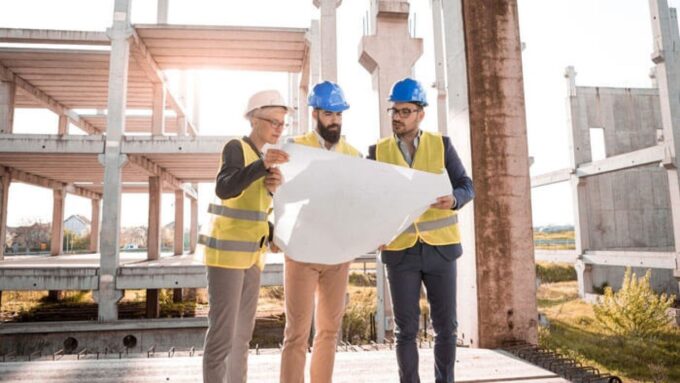
Safety considerations and adherence to local building codes are paramount when undertaking a rooftop decking project in Boston. Ensuring the structural integrity of the rooftop deck and following safety guidelines is crucial to protect the occupants and the building itself.
Importance of Safety Regulations and Building Codes
Rooftop decks must adhere to safety regulations and building codes to prevent accidents and ensure the structure’s longevity. Working with licensed professionals who are knowledgeable about local building requirements is essential.
Common Safety Considerations for Rooftop Decks
Factors such as weight-bearing capacity, proper waterproofing, fire safety measures, and proper railing installations are critical safety considerations when constructing a rooftop deck. Engaging with structural engineers, architects, and contractors with experience in rooftop decking can help address these concerns effectively.
Tips and Guidelines for Safe Rooftop Decking Projects in Boston
To ensure the safety of rooftop deck project in Boston, it is recommended to consult professionals and follow these guidelines:
- Obtain necessary permits and approvals from local authorities before starting the project.
- Work with qualified contractors who have experience in rooftop decking.
- Conduct a thorough structural assessment of the rooftop to determine its load-bearing capacity.
- Install proper waterproofing systems to prevent water damage.
- Follow building codes and regulations regarding railing height, spacing, and material requirements.
- Regularly inspect and maintain the rooftop deck to address any issues promptly.
Conclusion
In conclusion, rooftop decking offers a transformative solution to maximize outdoor space in Boston’s urban areas. By embracing rooftop decks, residents can create urban paradises that optimize space, embrace the city’s skyline and views, provide a tranquil retreat, prioritize sustainability, blend seamlessly with the architectural style, and ensure safety compliance. With the right design, materials, and professional guidance, Bostonians can turn their rooftops into captivating outdoor living spaces that enrich their urban lifestyles.

